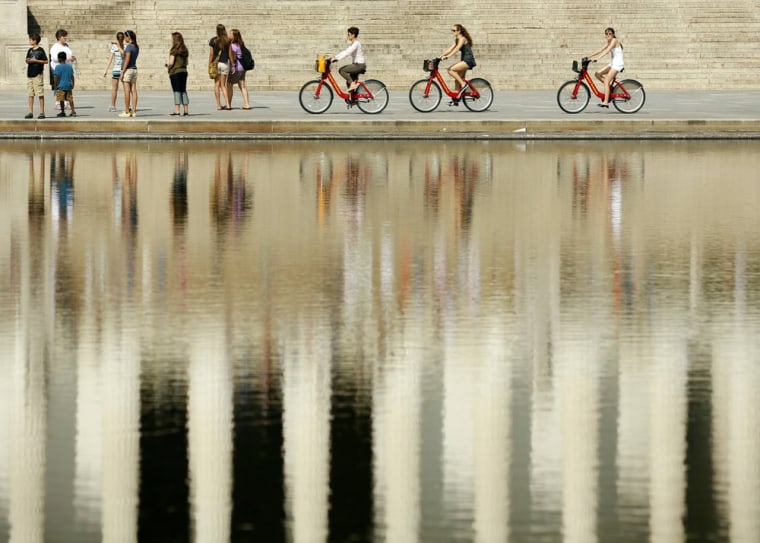Fifty years after the March on Washington at the National Mall in Washington, D.C., people from across the globe will gather — starting Wednesday — to celebrate the anniversary of a watershed moment in civil rights history.
The march and rally on August 28, 1963, attracted more than 200,000 people and featured Dr. Martin Luther King, Jr., who gave his groundbreaking "I Have a Dream" speech at the Lincoln Memorial. The massive event followed several years of nonviolent, grassroots demonstrations for civil rights that included the 1955 Montgomery Bus Boycott, the 1960 student sit-ins across the South, the 1961 Freedom Rides, the 1963 Birmingham campaign, and more.
Bernice King, CEO of the King Center in Atlanta and daughter of Dr. King and Coretta Scott King, recalled her father's speech, which referenced the 100th anniversary of the Emancipation Proclamation: "He said, 'One hundred years later, the Negro is still not free.' And I would argue that 150 years later, the African American race is still not free ... There are still great disparities in the African American community."
This year saw a confluence of several racially charged events, including the Supreme Court striking down a key part of the Voting Rights Act to the trial for the shooting of African American youth Trayvon Martin to a federal judge's ruling that New York's "stop and frisk" tactics violate the rights of blacks and Hispanics.
“If this year has shown us anything, it's that the work of the 1963 march is not yet finished,” Benjamin Todd Jealous, NAACP President and CEO, said recently.
As with the demonstrations in the '50s and the '60s, King said there is still an opportunity for change. "We always must remember that this was a people's movement," she said.
And of the legislative responses that ensued — the Civil Rights Act of 1964 and the Voting Rights Act of 1965 — she said, "It was a result of the people joining forces together, letting their voices be heard, and being vigilant."
The week-long 50th anniversary commemoration will include the following marquee events:
- 50th Anniversary March on Washington Realize the Dream March & Rally: Saturday, August 24, 8 a.m. to 4 p.m. starting at the Lincoln Memorial and ending at the Martin Luther King, Jr. Memorial. National Conveners: Martin Luther King, III & Rev. Al Sharpton, National Action Network. Open to the public.
- Global Freedom Festival: Saturday, August 24 and Sunday, August 25 at West Potomac Park. Hosted by The King Center & National Park Service. Open to the public.
- The “Let Freedom Ring” Commemoration and Call to Action: Wednesday, August 28, 11:30 a.m. to 4 p.m. at the Lincoln Memorial. Featured speakers will include President Barack Obama and former presidents Bill Clinton and Jimmy Carter. Hosted by The King Center, National Park Service, and the National Coalition on Black Civil Participation. Open to the public.
(For more information and the full itinerary for the 50th anniversary of the March on Washington, visit http://MLKdream50.com.)
More than 100,000 people are expected to attend Saturday's march and rally — including dozens of churches, service organizations and student groups — according to the National Action Network, co-organizers of the event.
Due to the concentration of events taking place at the National Mall, The Washington Metropolitan Area Transit Authority expects higher ridership than usual and encourages visitors to plan accordingly.
King hopes the week-long celebration not only prompts older Americans to reflect on the history they took part in and witnessed but also encourages younger Americans toward civic involvement.
"I think, symbolically, there's a convergence in all of this to say, 'Don't forget Martin's dream. Don't forget that there's still work to do to advance that struggle and the causes for which they were fighting for’,” King said.
"My mother said that struggle is a never ending process. Freedom is never really won; you earn it and win it in every generation,” she said.
“It is my hope that people understand that we have a responsibility in this generation to make a contribution to the freedom struggle."
Follow Grace Bello @grace_land.
